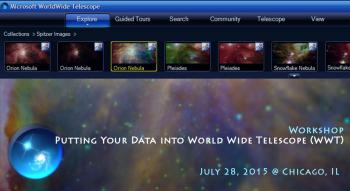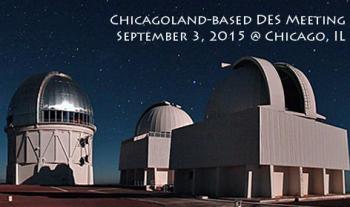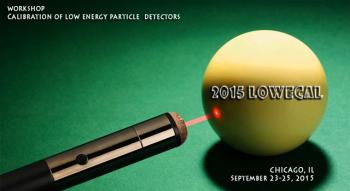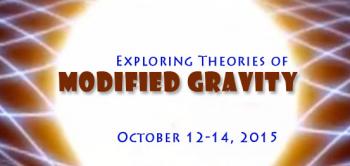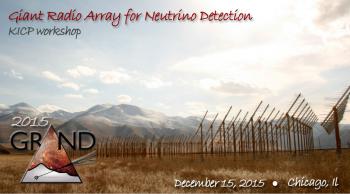| Home | Overview | Workshops & Conferences | Summer Schools | Visitors | Contact us | Logistics | KICP |

Workshops & Conferences
|
Workshops, 2015
2015 CMB Spectral Distortion Workshop Webpage The Kavli Institute for Cosmological Physics (KICP) at the University of Chicago is hosting a workshop on CMB spectral distortions. The frequency spectrum of the Cosmic Microwave Background has been shown to be a blackbody to a precision of 50 parts per million. However, at higher sensitivity the CMB is expected to show distortions from the blackbody shape. These distortions contain the signatures of energy-releasing processes in the early universe. A new experiment could improve the sensitivity to distortions by a factor of 1000 or more, opening a new window into the physics of the early universe. This workshop will explore the science potential and design requirements for such an experiment. A series of working sessions will examine the spectral signatures from different effects, instrument trades to reach different sensitivity levels, and data analysis techniques to maximize the science return from the spatial/spectral maps. The conference will be three days, Monday May 18 through Wednesday May 20.
Putting Your Data into World Wide Telescope (WWT) Webpage Tuesday July 28, 2015 9AM - 6PM LASR Conference Room This will be an intensive 1-day working workshop for people who are interested in porting their data into WorldWide Telescope and developing uses for that data in WWT - video abstracts, tours, etc. A follow-up data showcase at the Adler Planetarium is also planned. A lunch talk will provide the larger KICP community with a broad introduction to WWT and ways that its stunning visuals can be used for outreach, teaching, professional talks, publications and research.Learn more >> DESUC2015: Chicagoland-based DES meeting Webpage This 1-day long Chicagoland-based DES meeting creates a common discussion platform for those who work on Dark Energy Survey (DES) at the KICP, University of Chicago, Fermilab, UIUC, NCSA, and Argonne. The ongoing Dark Energy Survey is designed to probe the origin of the accelerating universe and help uncover the nature of dark energy by measuring the 14-billion-year history of cosmic expansion with high precision. Learn more about the survey at the DES website. The objectives of this meeting are to provide updates and to discuss various science/infrastructure projects that are going on in Chicagoland and to provide a channel for interested people to join ongoing and create new projects.Learn more >> Calibration of low energy particle detectors Webpage The Kavli Institute for Cosmological Physics (KICP) at the University of Chicago is hosting a workshop on the calibration of the energy response of a wide range of different targets and technologies that are currently being implemented and/or explored for the detection of the lowest energy signals from dark matter and neutrino interactions. These include scintillating crystals, ionization and phonon solid state detectors, noble liquid scintillation and ionization detectors, and superheated detectors. We aim to bring together a diverse group of scientists to report, propose and discuss the various calibration techniques. Current research at KICP includes multiple efforts, on- and off-site, on the calibration of bubble chambers, charge-coupled devices, noble liquid time projection chambers, p-type point-contact Ge detectors and CsI crystals.Learn more >> Exploring Theories of Modified Gravity Webpage The Kavli Institute for Cosmological Physics (KICP) at the University of Chicago is hosting a workshop this fall on theories of modified gravity. The purpose of workshop is to discuss recent progress and interesting directions in theoretical research into modified gravity. Topics of particular focus include: massive gravity, Horndeski, beyond Horndeski, and other derivatively coupled theories, screening and new physics in the gravitational sector, and possible observational probes of the above. The meeting will be relatively small, informal, and interactive workshop for the focused topics.Learn more >> Giant Radio Array for Neutrino Detection (GRAND) Webpage KICP is hosting a workshop on GRAND (Giant Radio Array for Neutrino Detection) on December 15. The goal of the workshop is to bring together experts in large-scale array deployment, radio-detection and neutrino astrophysics, in order to discuss the technical challenges of the GRAND project.Learn more >> |
